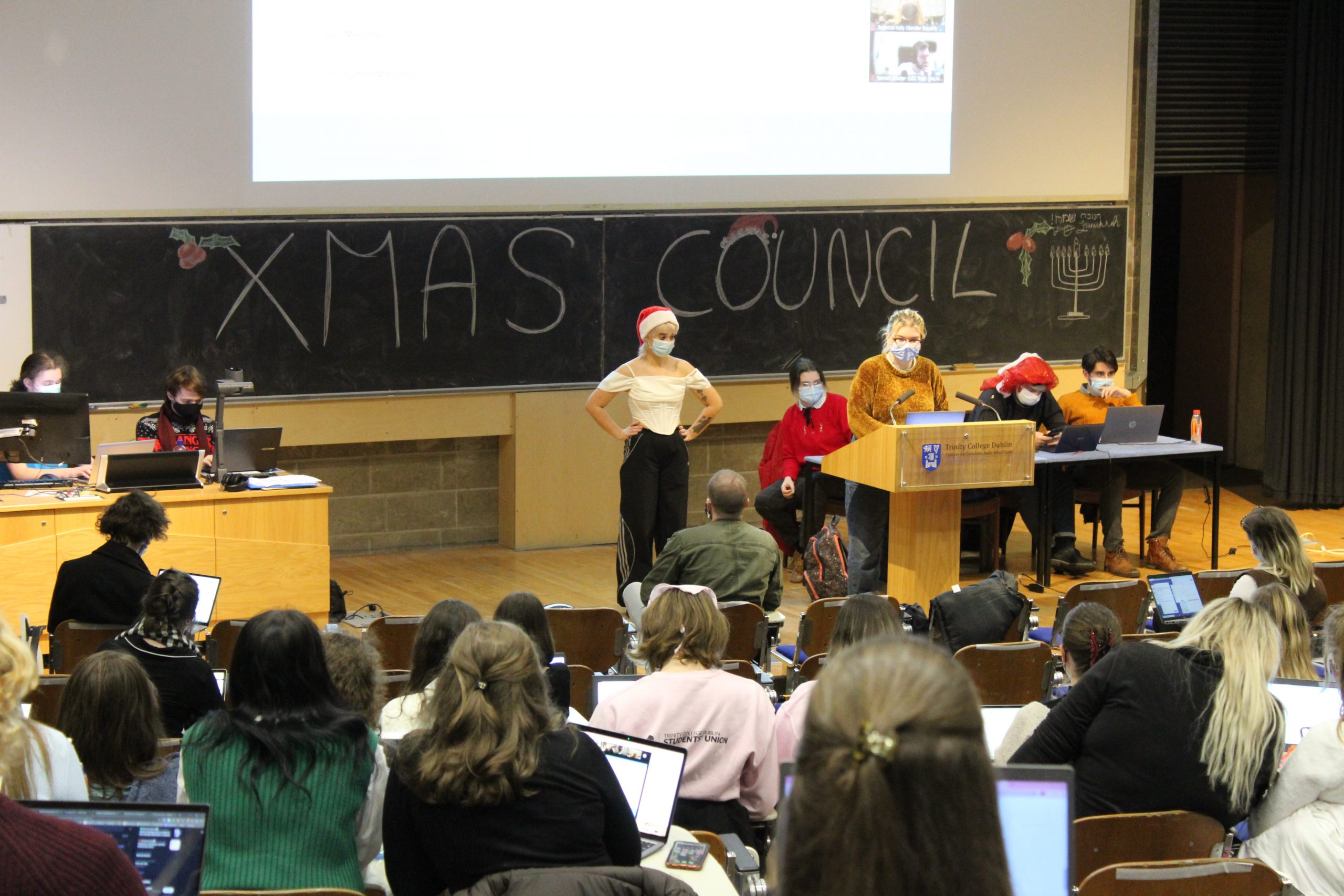Trinity College Dublin Student Union (TCDSU) has passed a motion at council mandating that they fulfil any accessibility requests from students for council meetings.
The officer for students with disabilities (OSD) will create and circulate the necessary accessibility request forms in advance of upcoming councils.
The officer is also now mandated to take charge of reviewing any accessibility requirements and to work with the Electoral Commission (EC) and the secretary to council to fulfil these requirements.
The motion was proposed by the current OSD Chloe Staunton and seconded by TCDSU Welfare Officer Sierra Mueller Owens.
Speaking at council, Staunton said that the intention of the motion was to “formalise the OSD involvement in managing” accessibility requirements.
Staunton continued, saying this circulation of requests was something she “could help out with.”
“It can really help just to have another person helping out.”
The motion also mandates the creation of accessibility forms that can be submitted in advance of council meetings. This form will alert the OSD to any particular requirements students might have.
The motion noted that the creation and management of these accessibility forms would be too taxing for the EC and the secretary to council, due to their workload in the leadup to council.
Speaking to Trinity News, Staunton said: “My motivation for bringing this motion was to help alleviate some of the workload of the EC in the lead up to council.”
She believes that “they have done a great job meeting accessibility requests and have strived to have accessible councils”.
“This motion simply mandates the officer for students with disability to be more involved in the accessibility request process for council.”
“By creating this mandate, the [officer] can be at the forefront of council accessibility, and be a better support for the EC going forward” she continued.
This motion comes following the previous council, in which issues of accessibility arose, as the Irish Sign Language (ISL) interpreter was unable to hear what was being said due to the level of sound quality from the microphones used.
TCDSU also passed a motion opposing the “cultural death” of Dublin, in response to announcements of the closure of cultural resources such as the Science Gallery and Chapters Bookstore.
The proposal highlighted the recent tearing down of many public cultural resources such as libraries, museums, bars and nightclubs with the intention of building hotels in their place.
The motion recognised the current accommodation and cultural crisis that Dublin faces, asserting the importance of both accommodation and the protection of cultural heritage.
The proposal mandates TCDSU to hold an official stance to “#StopKillingDublin”, and for the campaigns committee to work in conjunction with the president towards forming an action plan to tackle the issue.
During the discussion Morris said that this motion is “tied to the housing crisis as well”. She said that “not only do we deserve to be able to live in Dublin we deserve Dublin to be an interesting place to be worth living in”.
Speaking to Trinity News on the proposal of the motion, Morris stated that she is “tired of seeing Dublin’s individuality being thrown away in favour of more hotels, etc”.
She also highlighted Dublin’s “serious accommodation issue”, asserting that this motion ties in with that.
“We want Dublin to be a place that is worthy of its people, instead of just its tourists,” she concluded.






